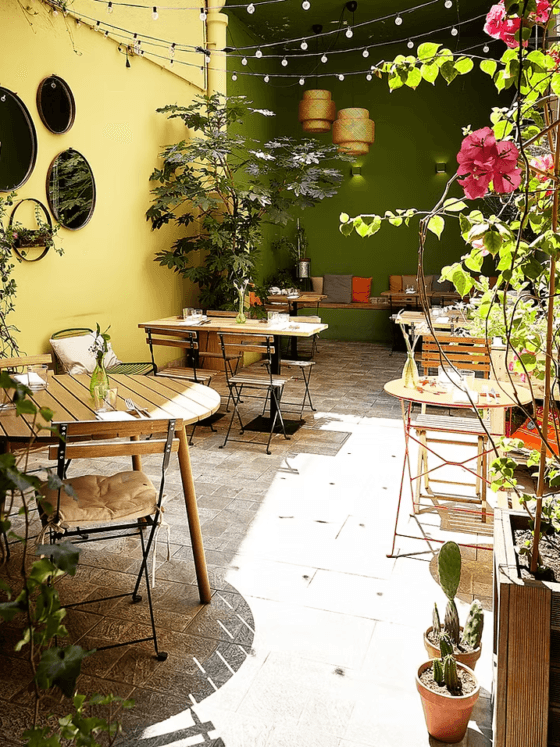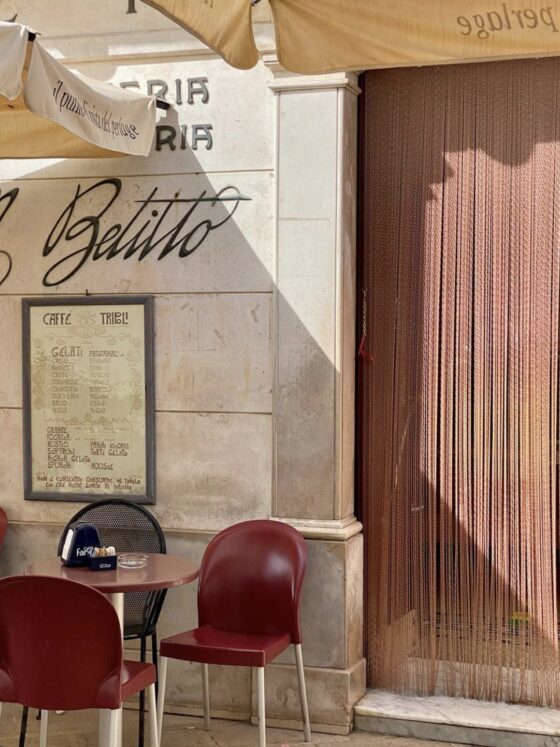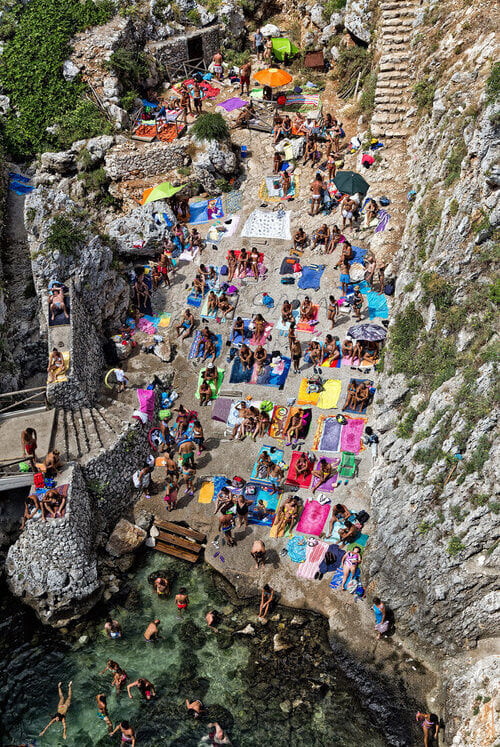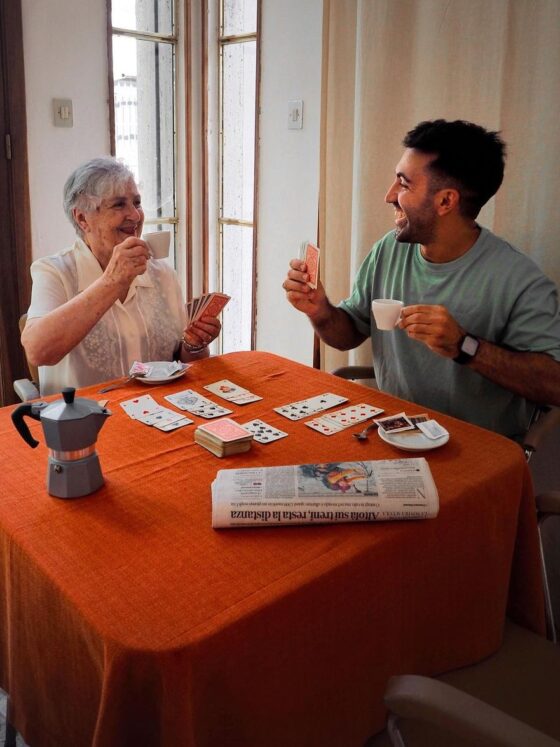Everybody’s Working for the Weekend (Except Italians)
Italians are no stranger to a perfect cup of coffee. Espresso (caffè in Italian), macchiato, cappuccino, the list continues…wherever you are in Italy, you’ll find that like most things consumed, Italians take their passion to uncommon heights for the sake of their caffè. It’s certainly one of the things Italians are known for.
In a memorable scene, Signore Spaghetti walks Ms. Gilbert down the path of the Italian philosophy of “enjoying oneself”, and how different it is from the American philosophy of living for the weekend. He has the following exchange with his American friend:
Luca Spaghetti: You feel guilty because you’re American. You don’t know how to enjoy yourself!
Liz Gilbert: I beg your pardon?
Luca Spaghetti: It’s true. Americans know entertainment, but don’t know pleasure.
Giovanni: This is Luca Spaghetti, by the way, you know.
Liz Gilbert: Your name is Luca Spaghetti?
Luca Spaghetti: Yes, that’s what our family is called. We invented it. I’m serious. Listen to me. You want to know your problem? Americans! You work too hard. You get burned out. Then you come home and spend the whole weekend… in your pajamas in front of the TV.
Liz Gilbert: That’s not far off, actually.
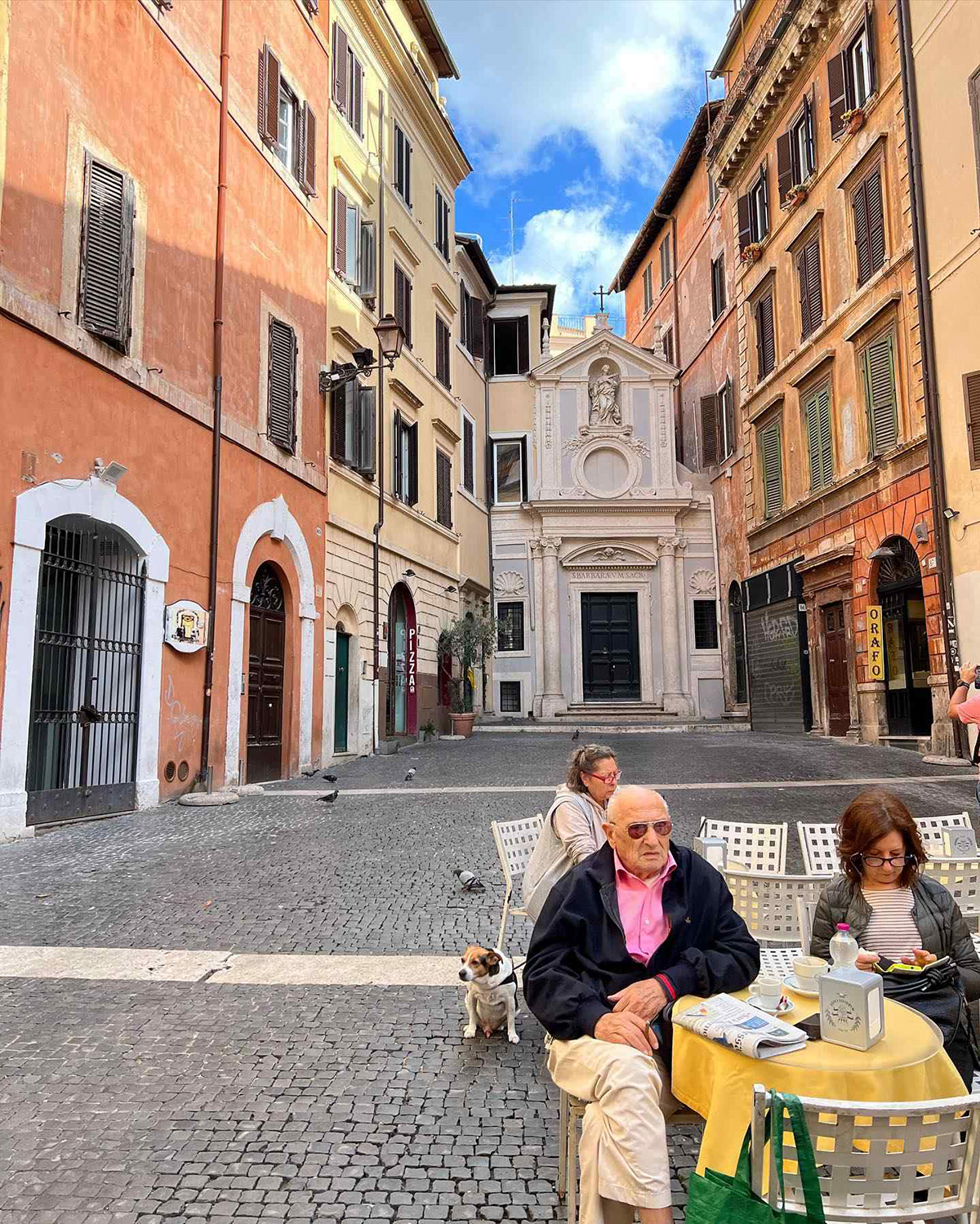
The Weekend: Work to live, or Live to Work?
While the foregoing exchange is comical and aimed to arouse laughter, after examining Italian culture v. North American culture, the sentiment rings true. While North Americans (and the UK) seem to be obsessed with grinding, hustling, and working oneself to death, Italians, and Europeans more broadly, seem to have captured the ever elusive “work-life” balance.
In Italy, “to go” is a foreign concept, midday breaks are a birthright, and evenings are for friends and family, not emails. Trite to say, but working to live, and not living to work is what Italians are known for. Occupations are not identities, and self-worth is not measured solely in terms of title, monetary wealth, or status.
And the numbers do not lie – According to the OECD’s Better Life Index, only 3% of Italians work long hours compared to the OECD average of 10%. Additionally, Italians spend on average 16.5 hours per day on non-work activities (this includes sleep), while the OECD average is just 15 hours. Essentially, Italy’s approach to work-life balance is deeply ingrained in its culture and values, that being time with friends and family ranks as high, if not higher, than work. Italians prioritize their personal lives and relationships, recognizing that work is just one aspect of their identity. So for Italians, working for the weekend is not a familiar concept – why wait for the weekend to enjoy life?

The Art of Living
I long recall my first visits to Italy and staying with relatives. Looking back, I remember my father’s cousin coming from work to spend two to three hours with us at midday for lunch. What struck me was the complete calm he had for being away from his place of employment. He played with his kids, poured everyone some wine, and talked with my father for the remainder of the afternoon – this was on a weekday. For the average Italian, nothing is more important than gathering their loved ones for a meal, a walk, a night out for pizza, or an evening in a piazza.
In Italy, there is also a sense of living each day with intention. Though plans can be spontaneous; the intention is there through the prioritization of social time, or when making a meal. One of our Italian friends, for instance, buys the groceries she wants for the day, based on what she’d like to make for family. When she needs something for tomorrow, she’ll just go to the market when needed – this results in a fresh loaf of bread, fresh vegetables, daily. Whereas in North America, people proudly display their weekend Costco “shopping haul” on Instagram because in North America, well, we have to meal prep.
The Obsession of Working for the Weekend
The meal prep way of life is an indictment of the workaholic lifestyle that many North Americans live (granted, in current conditions, this is out of necessity for so many, which is another topic in itself). Hustle, grinding, burning the midnight oil all contribute to a life where words like maximization, productivity, and “never stop” supplant ideas of balance, and living for the day, and slowing down. As Luca Spaghetti goes on to say, North Americans need to be told when to enjoy themselves. Working for the weekend means that you grind yourself to a pulp for five days, just so that you can flop for two in blissful consumption of media, fast food, sports, and then start the cycle all over again. But the question remains: why are North Americans so obsessed with working?
Derek Thompson’s article in the Atlantic, Workism is making Americans Miserable, provides an answer:
In a 2018 paper on elite universities, researchers found that for women, the most important benefit of attending a selective college isn’t higher wages, but more hours at the office. In other words, our elite institutions are minting coed workists. What’s more, in a recent Pew Research report on the epidemic of youth anxiety, 95 percent of teens said “having a job or career they enjoy” would be “extremely or very important” to them as an adult. This ranked higher than any other priority, including “helping other people who are in need” (81 percent) or getting married (47 percent). Finding meaning at work beats family and kindness as the top ambition of today’s young people.
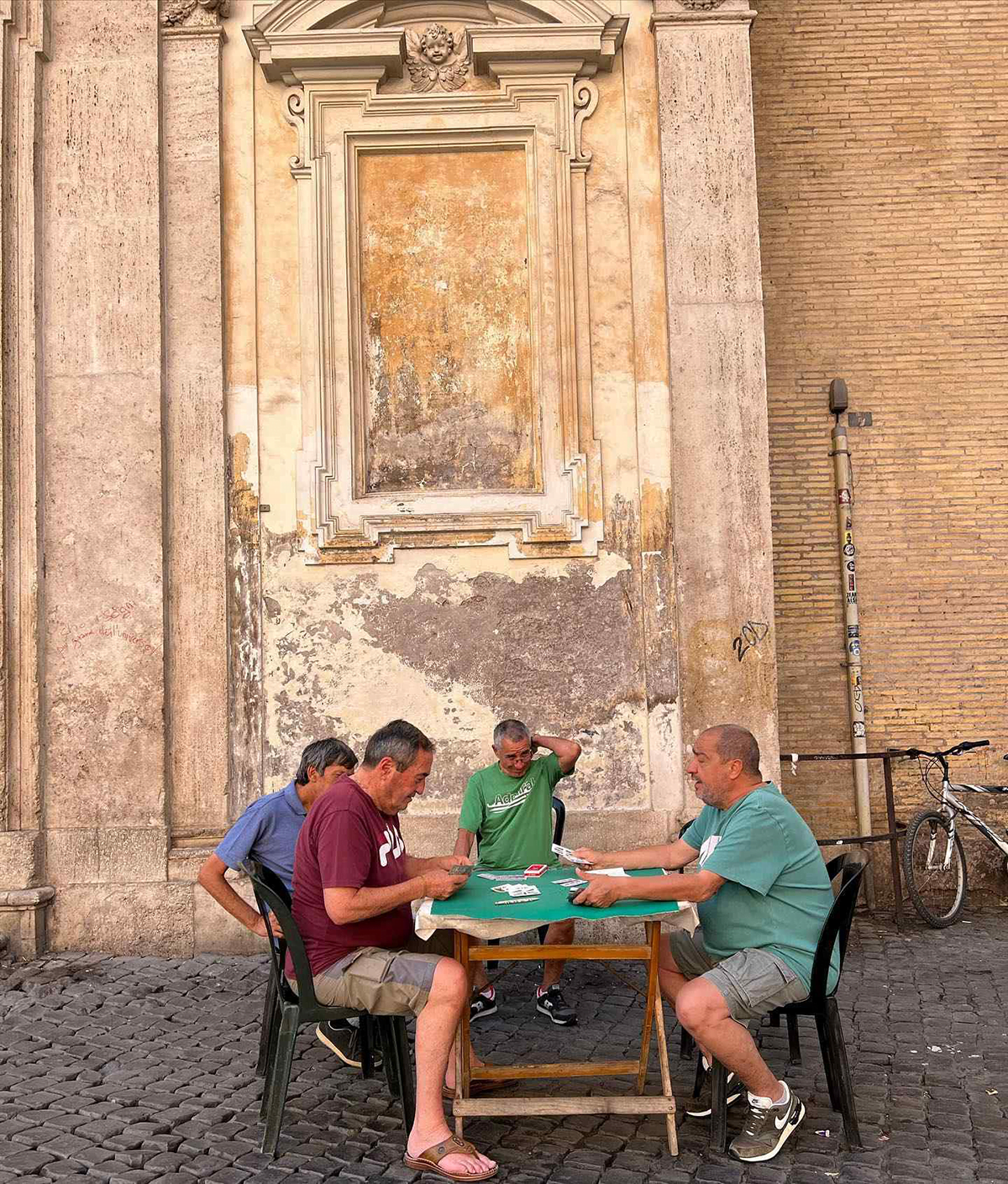
If finding meaning at work is more important than values of family and kindness, it is small wonder why the cultures in Italy and North America are inverted. When we place emphasis on work, and have it become our identity, we sacrifice the fulfillment provided by simple pleasures, like lunch with family, a night out for gelato with friends. For the most part, Italians have not let this go. Rather, they hold these values and experience close to their heart.
We have to be careful about overgeneralizing matters. In Italy, there are many that struggle, and finding work can be challenging, but nevertheless, work hard – it is not all passeggiatas and dolce vita. Same as in North America, where a growing number of people are rising to change the “corporate culture” with calls to action for better and more fulfilling definitions of “work-life balance”.
Nevertheless, on the whole, when it comes to the idea of working for the weekend, the differences between North America and Italy are stark. Again turning to Mr. Thompson’s article, where he finds the heart of the matter:
“On a deeper level, Americans have forgotten an old-fashioned goal of working: It’s about buying free time. The vast majority of workers are happier when they spend more hours with family, friends, and partners, according to research conducted by Ashley Whillans, an assistant professor at Harvard Business School. In one study, she concluded that the happiest young workers were those who said around the time of their college graduation that they preferred careers that gave them time away from the office to focus on their relationships and their hobbies.”
This is the ultimate issue: how do we work in a way that affords more time with friends, family, and hobbies? It is the new question we face as we try to navigate our way through work, through life, and finding meaning. Italians, though far from perfect, may be the inspiration North Americans needs – go out for that afternoon, enjoy that evening walk without checking emails. Italians may not have a perfect formula, but one thing is for sure, they are not working for the weekend so they can wear pajamas and watch movies.


